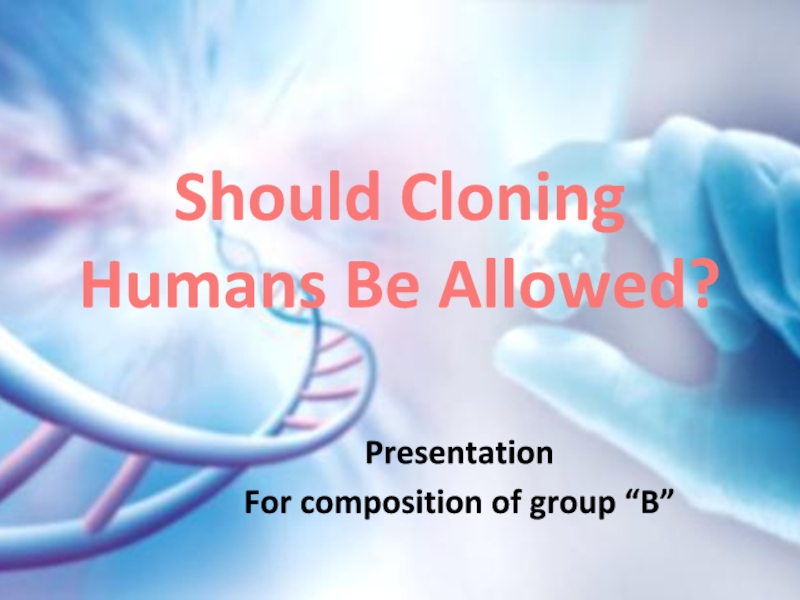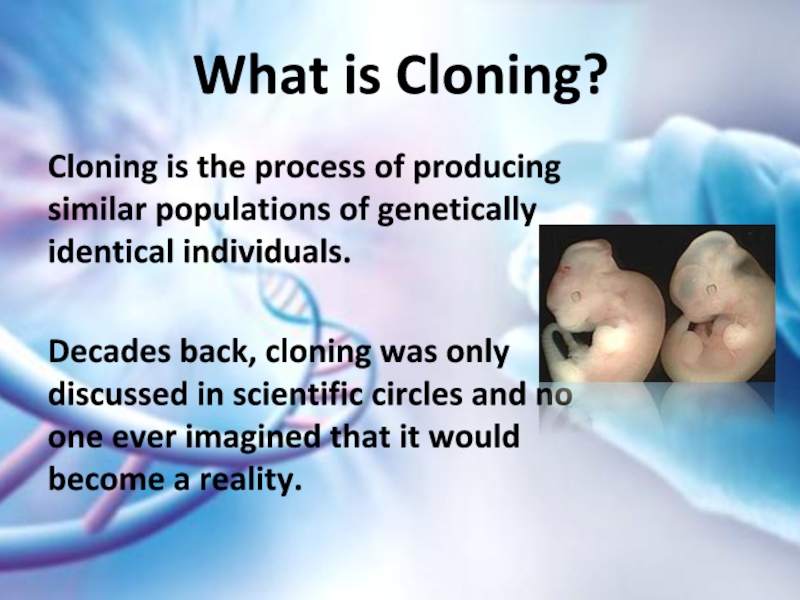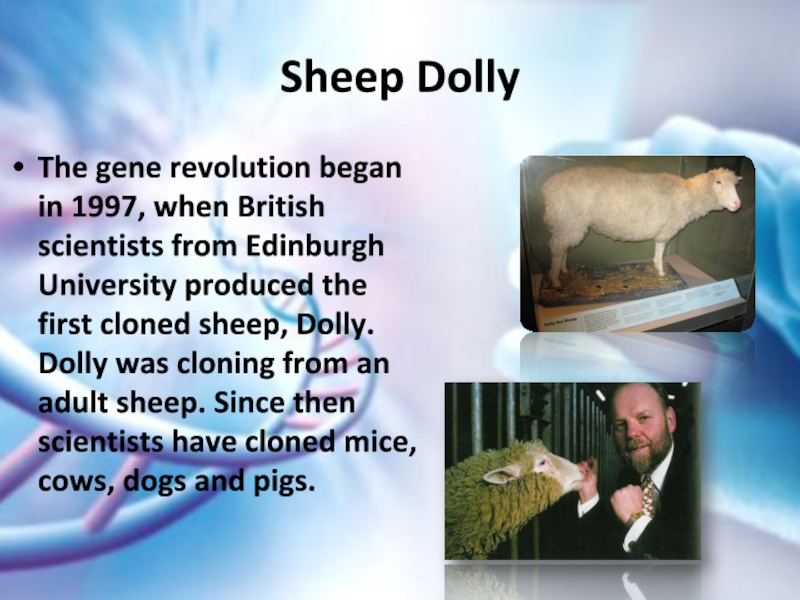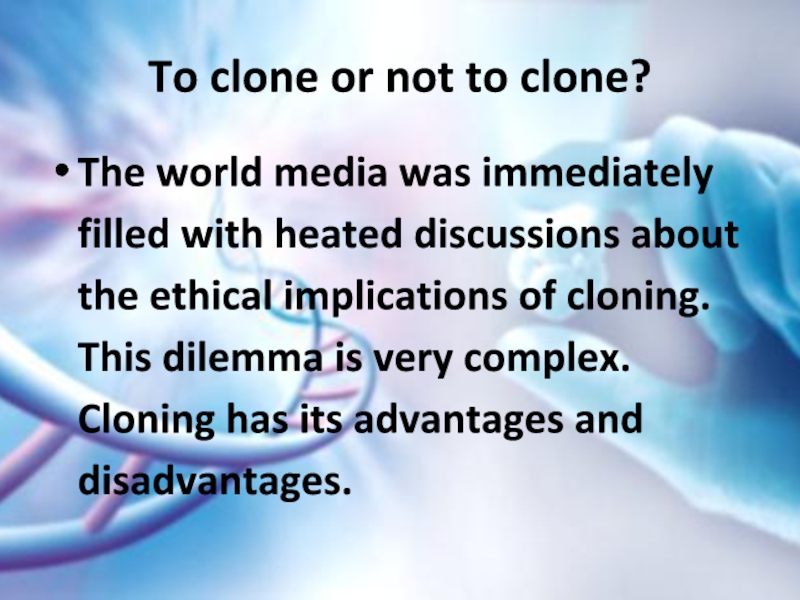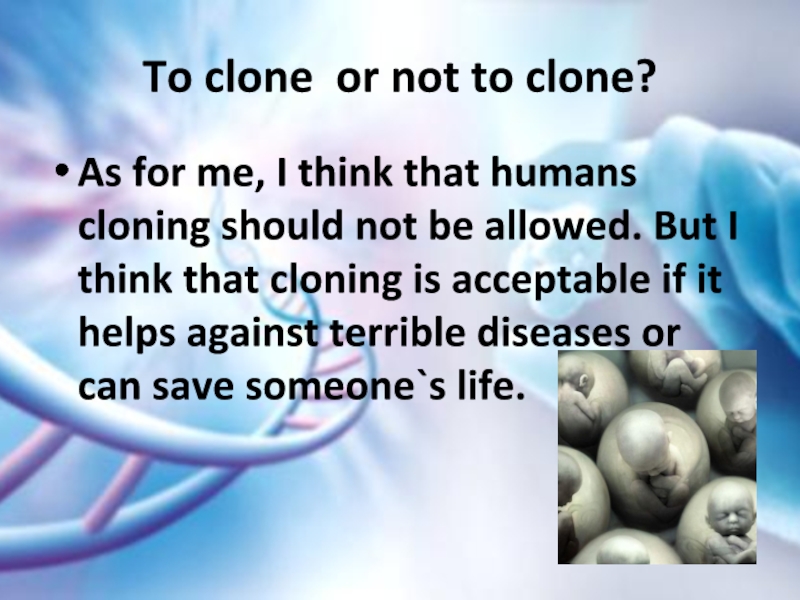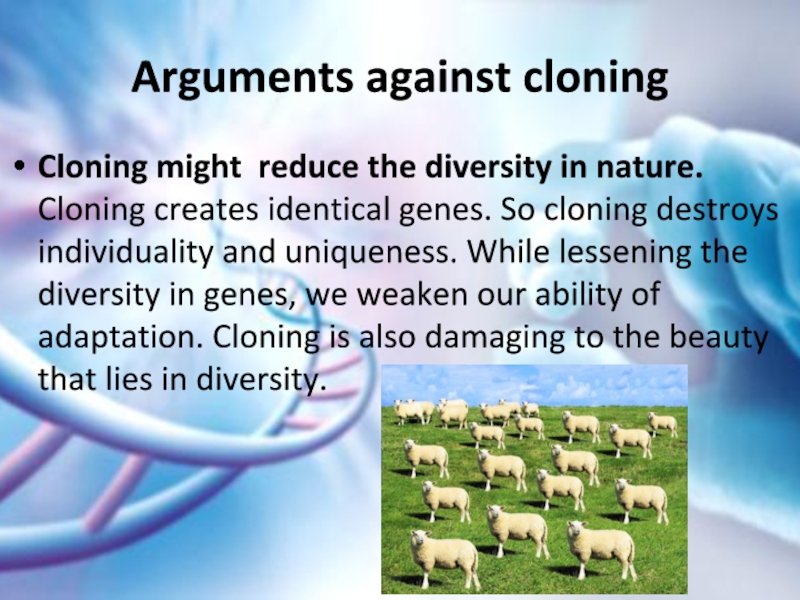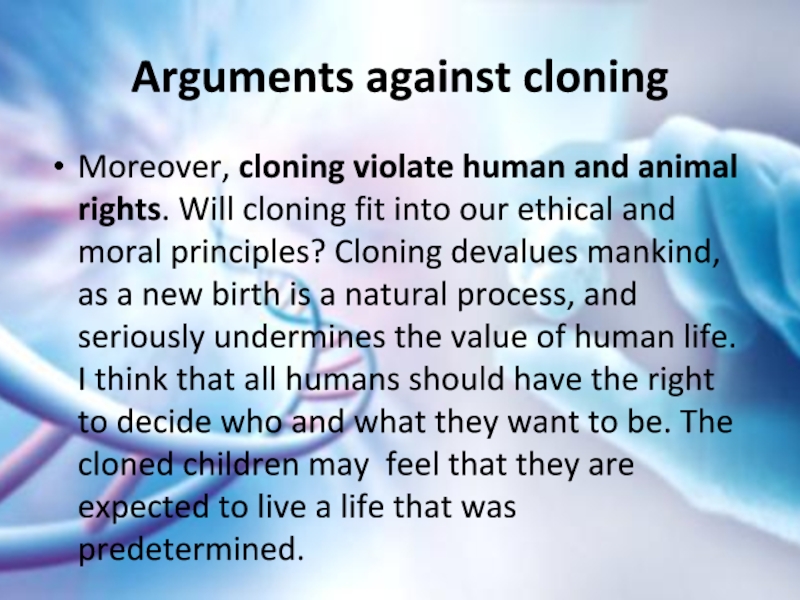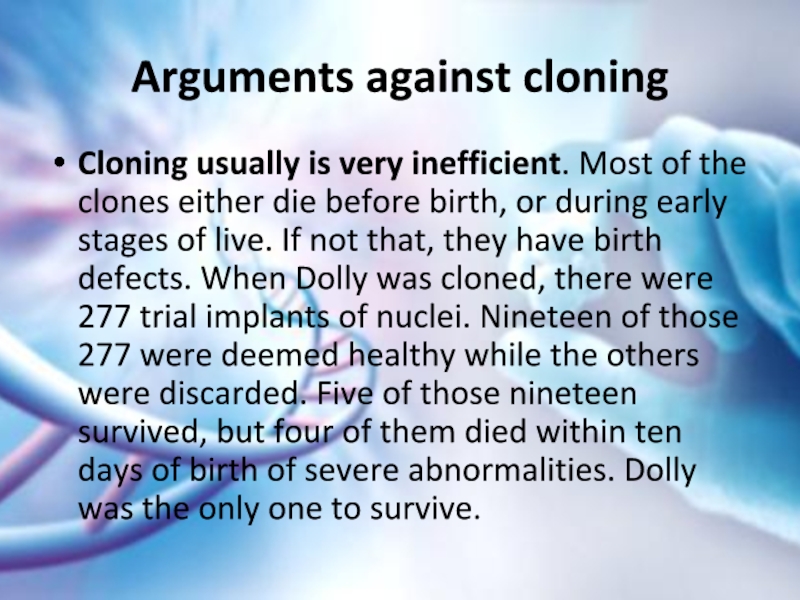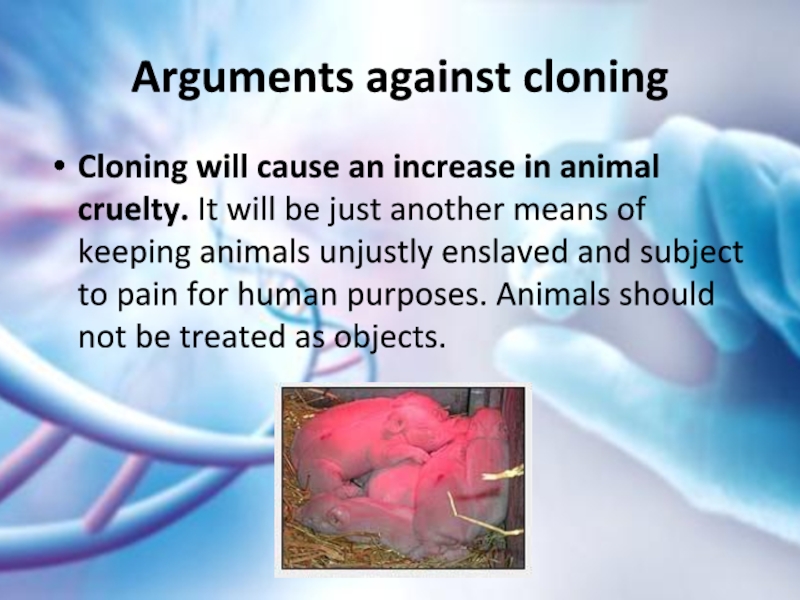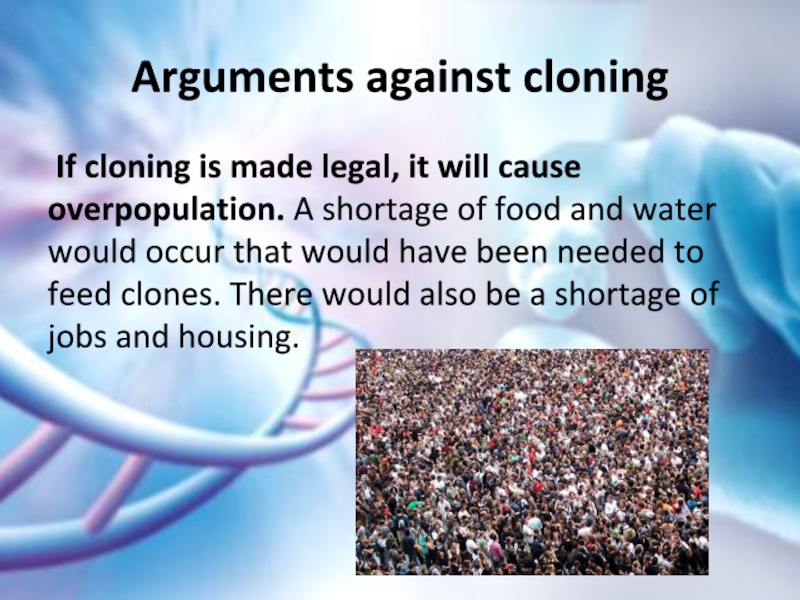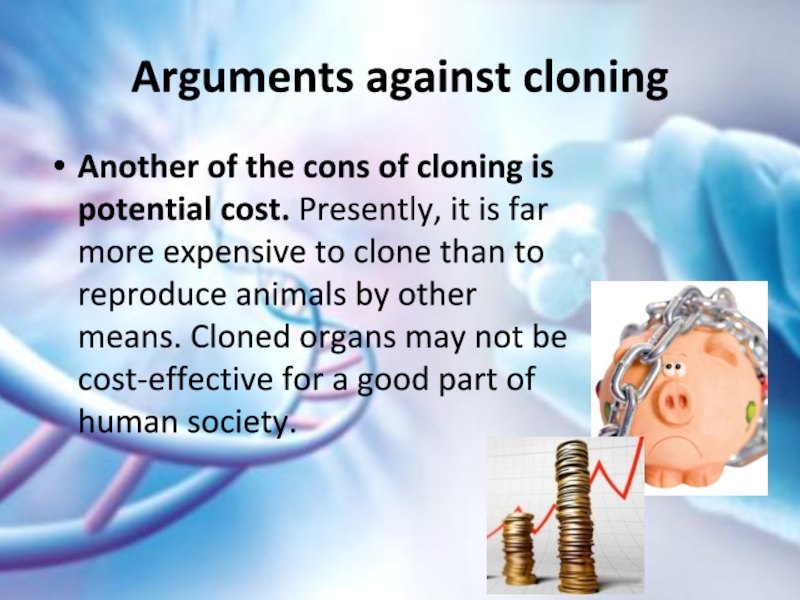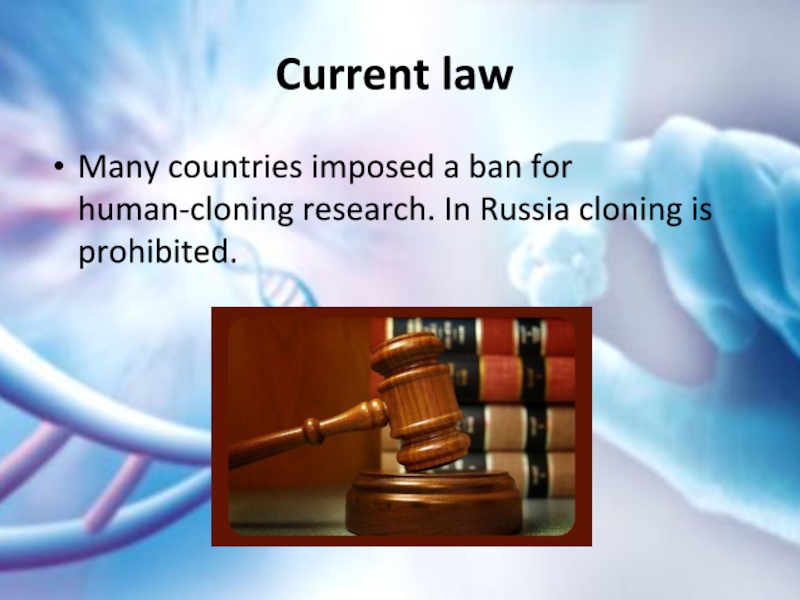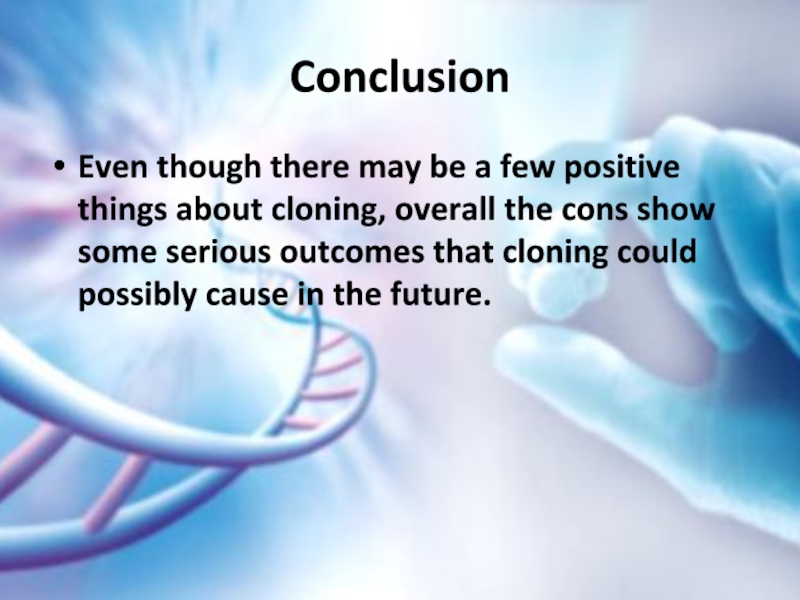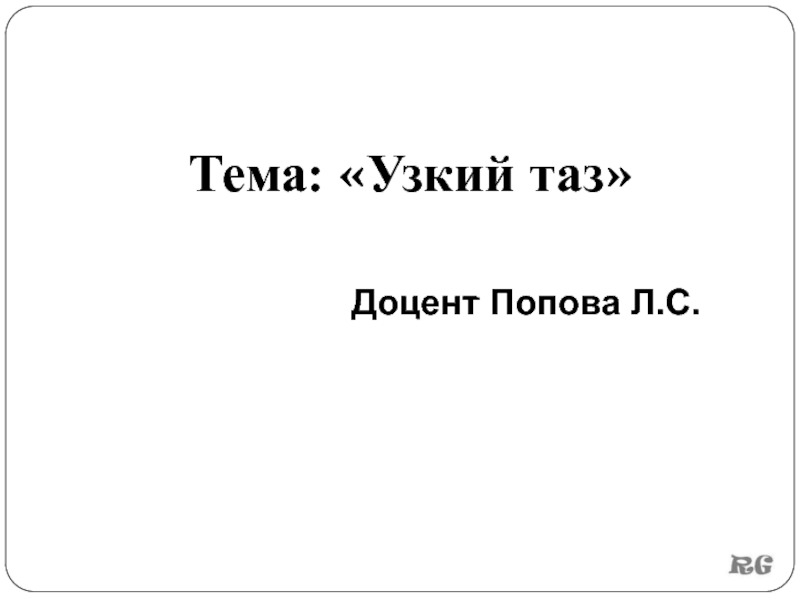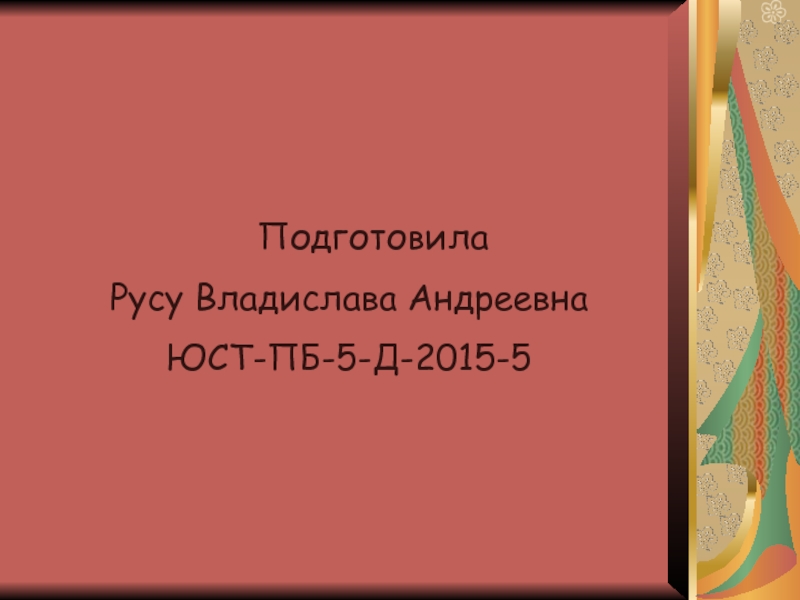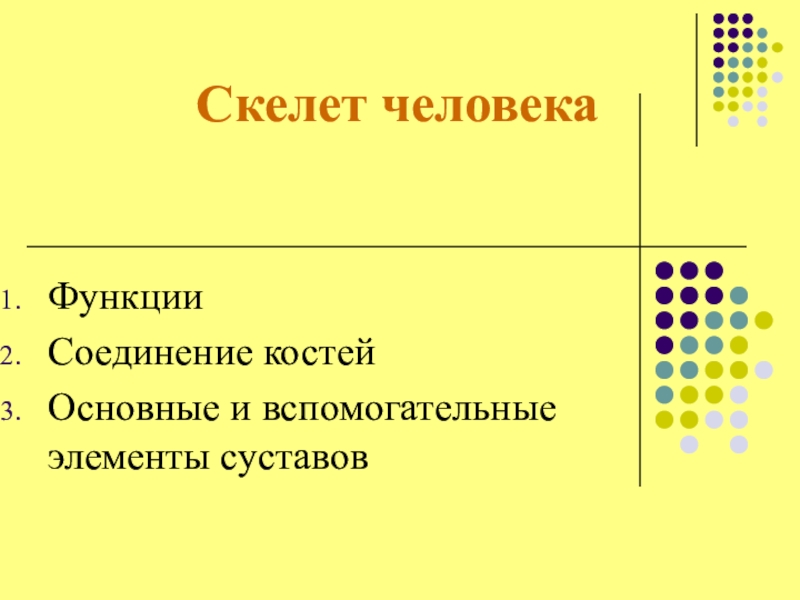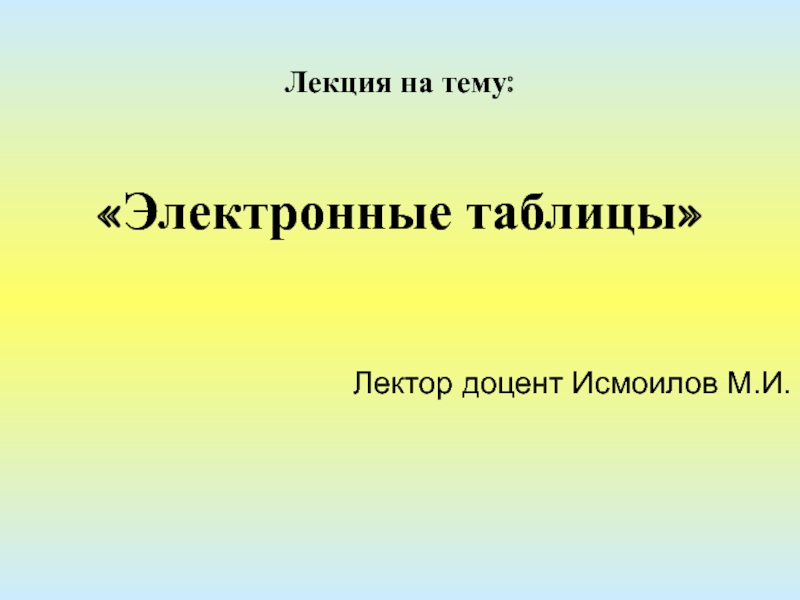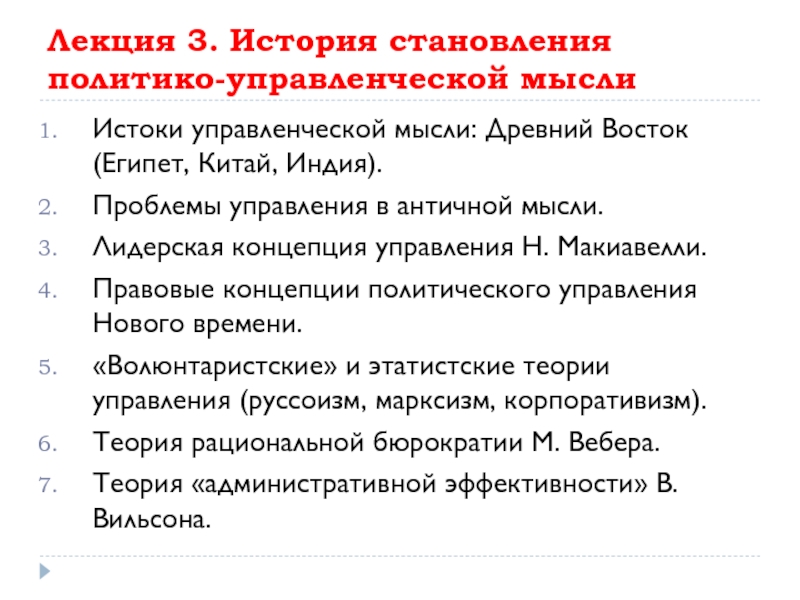Слайд 1Should Cloning Humans Be Allowed?
Presentation
For composition of group “B”
Слайд 2What is Cloning?
Cloning is the process of producing similar populations
of genetically identical individuals.
Decades back, cloning was only discussed
in scientific circles and no one ever imagined that it would become a reality.
Слайд 3Sheep Dolly
The gene revolution began in 1997, when British scientists
from Edinburgh University produced the first cloned sheep, Dolly. Dolly
was cloning from an adult sheep. Since then scientists have cloned mice, cows, dogs and pigs.
Слайд 4To clone or not to clone?
The world media was immediately
filled with heated discussions about the ethical implications of cloning.
This dilemma is very complex. Cloning has its advantages and disadvantages.
Слайд 5To clone or not to clone?
As for me, I think
that humans cloning should not be allowed. But I think
that cloning is acceptable if it helps against terrible diseases or can save someone`s life.
Слайд 6Arguments against cloning
Cloning might reduce the diversity in nature. Cloning
creates identical genes. So cloning destroys individuality and uniqueness. While lessening
the diversity in genes, we weaken our ability of adaptation. Cloning is also damaging to the beauty that lies in diversity.
Слайд 7Arguments against cloning
Moreover, cloning violate human and animal rights. Will
cloning fit into our ethical and moral principles? Cloning devalues
mankind, as a new birth is a natural process, and seriously undermines the value of human life. I think that all humans should have the right to decide who and what they want to be. The cloned children may feel that they are expected to live a life that was predetermined.
Слайд 8Arguments against cloning
Cloning usually is very inefficient. Most of the
clones either die before birth, or during early stages of
live. If not that, they have birth defects. When Dolly was cloned, there were 277 trial implants of nuclei. Nineteen of those 277 were deemed healthy while the others were discarded. Five of those nineteen survived, but four of them died within ten days of birth of severe abnormalities. Dolly was the only one to survive.
Слайд 9Arguments against cloning
Cloning will cause an increase in animal cruelty.
It will be just another means of keeping animals unjustly
enslaved and subject to pain for human purposes. Animals should not be treated as objects.
Слайд 10Arguments against cloning
If cloning is made legal, it will cause
overpopulation. A shortage of food and water would occur that
would have been needed to feed clones. There would also be a shortage of jobs and housing.
Слайд 11Arguments against cloning
Cloning crosses the lines with religious beliefs and
morals. There is only one creator, God. Cloning is equal
to emulating God.
Слайд 12Arguments against cloning
Cloning of body organs opens the possibility of
malpractices in medical fraternity. Allowing physicians to legally clone human
organs might lead to illegal organ cloning activities.
Слайд 13Arguments against cloning
Opening the door on the cloning of humans
could lead to all kinds of barbaric Frankenstein type experiments.
Слайд 14Arguments against cloning
Another of the cons of cloning is potential
cost. Presently, it is far more expensive to clone than
to reproduce animals by other means. Cloned organs may not be cost-effective for a good part of human society.
Слайд 15Current law
Many countries imposed a ban for human-cloning research. In
Russia cloning is prohibited.
Слайд 16Conclusion
Even though there may be a few positive things about
cloning, overall the cons show some serious outcomes that cloning
could possibly cause in the future.
